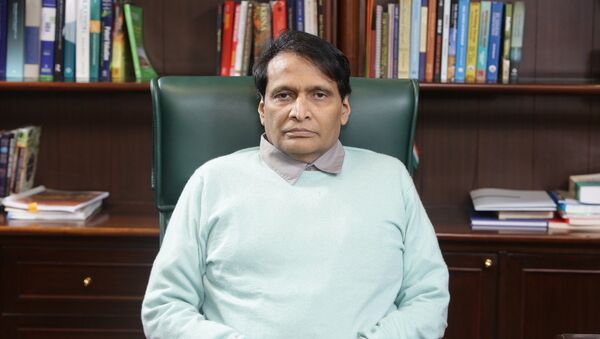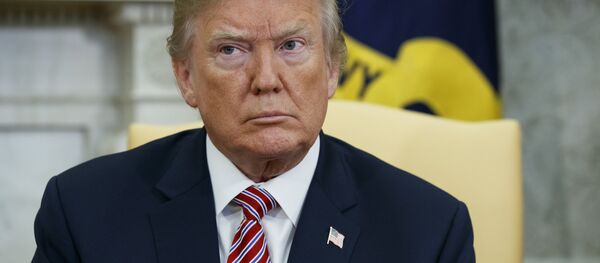Despite a visible thaw in China-Japan relations, the Regional Comprehensive Economic Partnership (RCEP), likely to become the world's biggest free-trade pact, will not materialize in 2018, Indian Minister for Trade and Commerce Suresh Prabhu claimed.
The Indian minister was briefing reporters in New Delhi about last week's meeting involving the trade ministers of 16 members of the proposed RCEP in Singapore.
READ MORE: Asia Responds to Trump's Trade War by Forming the World's Largest Economic Bloc
"The RCEP negotiations will not end in 2018. It has been agreed at the level of leaders, it will go on in 2019 as well and we will have the opportunity to work on all the issues," Suresh Prabhu told reporters.
Sharing highlights from my recent visit to Singapore for the 6th RCEP Ministerial Meeting and the 15th AEM India Consultations. Held several bilateral discussions with Ministers of the participating countries and reaffirmed India's commitment to the growth of global trade. pic.twitter.com/csTGfMw8Kj
— Suresh Prabhu (@sureshpprabhu) September 4, 2018
Negotiations for the RCEP were initiated in 2012. It aims to cover goods, services, investments, economic and technical cooperation, competition and intellectual property rights.
The participating countries had hoped to reach a broad agreement by November this year as the American trade war impacted global trade and boosted regional trade.
However, the Indian trade minister cited a lack of trade agreements between India and countries like China, New Zealand and Australia for the delay in concluding the RCEP negotiations. India has trade agreements with the rest of the members, including Japan and ASEAN countries.
"We cannot negotiate through the RCEP route with these three countries (China, New Zealand and Australia) and we have to separately negotiate with them. … India's insistence has been accepted and we will now be negotiating with China, Australia, and New Zealand separately along with the RCEP negotiations," Prabhu stated at the briefing.
The RCEP bloc comprises 10 ASEAN members (Brunei, Cambodia, Indonesia, Malaysia, Myanmar, Singapore, Thailand, the Philippines, Laos, and Vietnam) and their six Free Trade Agreement partners — India, China, Japan, South Korea, Australia, and New Zealand.
READ MORE: China Seeks Trade Increase With ASEAN Amid Dispute With US
China has acquired a liberal stance on some of the issues related to waiving off customs duty on several products from RCEP members since the Trump administration started imposing tariffs on Chinese products. Meanwhile, the US's withdrawal from the Trans-Pacific Partnership (TPP) has changed Tokyo's stance towards the China-backed RCEP.
"Premier Li Keqiang visited Japan in May and the Japan-China relationship has completely returned to a normal track," Shinzo Abe, Japan's prime minister, told the Sankei newspaper last week.
Earlier in July this year, Abe had called for a united Asia to fight the bane of protectionism.



